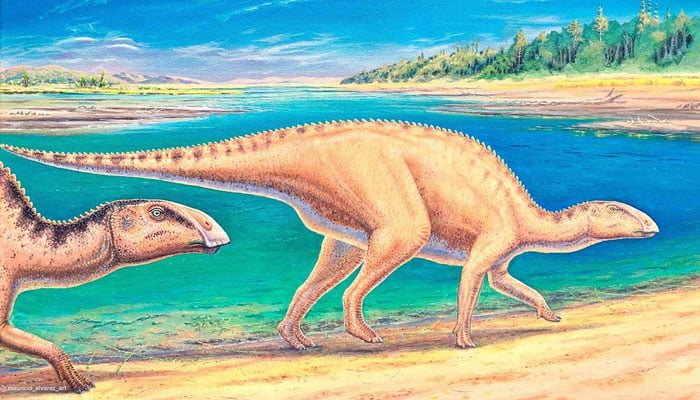Herbivore dinosaur that roamed Earth 72 million years ago
Scientists first misunderstood them as other South American hadrosaurs
As more cutting-edge scientific research is conducted in various fields, we are learning more and more about extraordinary species that have existed on Earth long before us.
The discovery of the numerous dinosaur species that once lived on our planet has actually made significant advances in science. Scientists have recently found the fossilised remains of a new species of duck-billed dinosaur that inhabited Chile 72 million years ago, adding to their growing collection of dinosaur discoveries.
According to a study published in the journal Science Advances, the recently discovered plant-eating creature known as Gonkoken nanoi could grow to 4m (13ft) in length and weigh up to a tonne.
A nearly 10-year research project led to the discovery, during which yellowish bone fragments were discovered in 2013 during an expedition run by the Chilean Antarctic Institute (INACH) that was near Torres del Paine National Park in Patagonia.
Jhonathan Alarcon, the main author of the study, said: "At first, we thought it was from the same group as other South American hadrosaurs, but as the study progressed, we realised that it was something unprecedented."
He claimed that more than 100 pieces of bone had to be carefully removed by researchers, who took care not to harm any other bones in the process.
The next step was for palaeontologists to confirm that the dinosaur was a new species by confirming that the remains belonged to the same species and comparing them to previously conducted research.
Another study author, Alexander Vargas, said: "[The] Gonkoken nanoi is not an advanced duck-billed dinosaur, but rather an older transitional duck-billed lineage — an evolutionary link to advanced forms."
The find follows the discovery of Vectipelta barretti, a different new species of dinosaur with blade-like spikes for armour, on the Isle of Wight off the south coast of England.
According to the Natural History Museum in London, Vectipelta barretti is the island's first ankylosaur dinosaur to have armour in 142 years. There are not many dinosaur fossils found worldwide, which suggests a mass extinction occurred during the Early Cretaceous period when they lived.
-
Deon Cole takes swipe at Nicki Minaj in mock prayer during NAACP Image Awards monologue
-
Belgium seizes suspected Russian shadow fleet tanker
-
Shipping giant Maersk halts Suez Canal, Bab el-Mandeb sailings amid escalating conflict
-
Bolivian military plane crash death toll rises to 20
-
Bobby Moynihan makes shock admission about 1994's 'The Lion King' as he steps into new role
-
Missing Florida man found alive after days trapped in 'quick-sand like mud'
-
Sea Tragedy: One dead, several missing after tugboat sinks off South Africa
-
Woman jailed for sleeping next to husband's corpse for weeks












